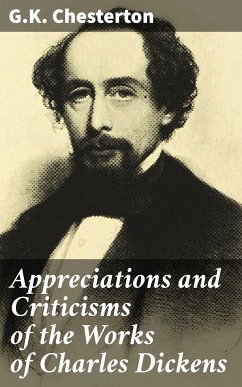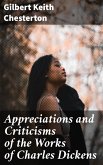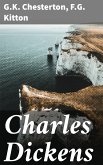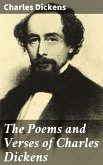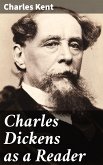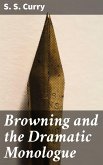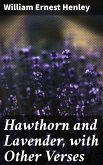In "Appreciations and Criticisms of the Works of Charles Dickens," G.K. Chesterton presents an insightful exploration of Dickens' literary impact, marrying a blend of admiration and critical analysis that captures the essence of Dickensian prose. Chesterton's writing exhibits both wit and a deep philosophical inquiry, reflecting on Dickens' themes of social justice, morality, and the human experience. The work positions itself within the literary canon as both a tribute and a critique, highlighting significant motifs in Dickens' storytelling while engaging with broader cultural and historical contexts of Victorian England. Chesterton, a prominent literary figure and critic, is known for his ability to articulate the complexities of human nature and society. His affection for Dickens arises from his own struggles with modernity and existential questions. Chesterton's background as a journalist and a novelist informs his perspective, enabling him to bridge the gap between literary appreciation and the pressing societal concerns of his time, revealing the layers of meaning hidden within Dickens' works. This book is an essential read for anyone interested in literature, as it not only illuminates Dickens' genius but also serves as a thoughtful commentary on the moral fabric of society. Chesterton's analysis challenges readers to reconsider their understanding of Dickens, enriching their appreciation of one of literature's most beloved authors. In this enriched edition, we have carefully created added value for your reading experience: - A succinct Introduction situates the work's timeless appeal and themes. - The Synopsis outlines the central plot, highlighting key developments without spoiling critical twists. - A detailed Historical Context immerses you in the era's events and influences that shaped the writing. - An Author Biography reveals milestones in the author's life, illuminating the personal insights behind the text. - A thorough Analysis dissects symbols, motifs, and character arcs to unearth underlying meanings. - Reflection questions prompt you to engage personally with the work's messages, connecting them to modern life. - Hand-picked Memorable Quotes shine a spotlight on moments of literary brilliance. - Interactive footnotes clarify unusual references, historical allusions, and archaic phrases for an effortless, more informed read.
Dieser Download kann aus rechtlichen Gründen nur mit Rechnungsadresse in A, B, BG, CY, CZ, D, DK, EW, E, FIN, F, GR, H, IRL, I, LT, L, LR, M, NL, PL, P, R, S, SLO, SK ausgeliefert werden.

